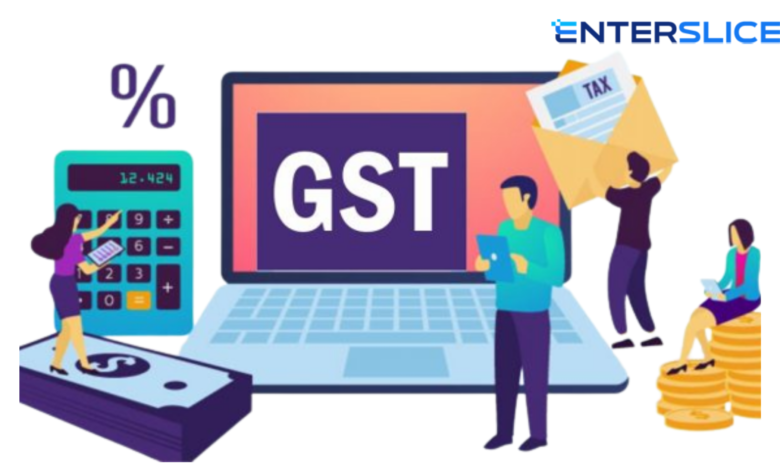
Preparing for a Goods and Services Tax (GST) audit can be a daunting task for businesses, but having the right documentation can make the process smoother and less stressful. A GST audit is essential to ensure compliance with tax regulations and to identify any discrepancies that might lead to penalties. In this blog, we will explore the necessary documentation required for a successful GST audit, emphasizing the importance of GST audit for businesses and how GST advisory services can help.
Understanding GST Audit
A GST audit is a thorough examination of a taxpayer’s accounts and records to verify the correctness of GST returns filed. The audit can be conducted by the Goods and Services Tax (GST) authorities or can be a self-assessment audit carried out by the business itself. The primary goal is to ensure that businesses comply with GST laws, pay the correct amount of tax, and claim eligible input tax credits.
For businesses, preparing for a GST audit involves maintaining meticulous records. This not only helps during the audit process but also supports effective tax planning and compliance. Here are the key documents required for a successful GST audit.
1. GST Registration Certificate
The GST registration certificate is the first document you need to present during an audit. This certificate confirms that your business is registered under the GST Act. It includes your GSTIN (Goods and Services Tax Identification Number), which is essential for all GST-related transactions.
2. GST Returns
All filed GST returns must be organized and readily accessible. This includes:
- GSTR-1: This return includes details of outward supplies made by the taxpayer.
- GSTR-2A: This is a system-generated return that includes details of inward supplies.
- GSTR-3B: This is a summary return that businesses file every month.
- Annual Return (GSTR-9): This return provides a comprehensive summary of all transactions for the financial year.
Ensure all returns are accurate and match the supporting documents. Discrepancies in returns can lead to complications during the audit.
3. Sales and Purchase Invoices
All sales and purchase invoices must be compiled and categorized. Each invoice should contain the following information:
- Invoice Number
- Date of Issue
- Name and GSTIN of the Supplier/Recipient
- Description of Goods or Services
- Value of Goods or Services
- Applicable GST Rate
- GST Amount
Having organized invoices helps auditors verify the correctness of reported transactions and validate input tax credits claimed.
4. Payment Vouchers and Bank Statements
To substantiate the financial transactions, it is crucial to keep payment vouchers and bank statements. These documents provide evidence of the payment made for purchases and the receipt of income from sales. Ensure that:
- All payment vouchers are numbered and filed systematically.
- Bank statements reconcile with the entries in your accounting records.
5. Input Tax Credit (ITC) Documentation
To claim input tax credit, businesses must maintain proper documentation. This includes:
- Invoices from suppliers: Ensure they meet GST compliance and are recorded in your books.
- Payment evidence: Proof of payment made for the purchases.
- ITC Reconciliation: Regularly reconcile your input tax credit with the GSTR-2A to identify any discrepancies.
Proper ITC documentation is crucial for maximizing your eligible credits and minimizing tax liability.
6. Accounting Records
Accurate accounting records are vital for a successful GST audit. These records should include:
- Ledgers: Maintain ledgers for sales, purchases, and expenses.
- Trial Balance: A summary of all accounts to ensure the accuracy of financial data.
- Profit and Loss Account: This shows the business’s revenue and expenses, helping auditors understand the financial performance.
Ensure that your accounting system is up to date and reflects all transactions accurately.
7. Correspondence with Tax Authorities
Keep a record of all correspondence with tax authorities. This includes notices, replies, and any other communication. Having this documentation is crucial, especially if there are disputes or clarifications needed during the audit.
8. Documentation Related to Exemptions and Special Rates
If your business deals with exempt supplies or applies for special rates under GST, maintain documentation supporting your claims. This may include:
- Exemption certificates: Proof that certain goods or services are exempt from GST.
- Supporting documents for reduced rates: Any applicable documents justifying the lower tax rates.
9. Previous Audit Reports
If your business has undergone previous audits, keep copies of past audit reports. These reports may provide insights into areas that require attention or improvements. Additionally, they can help in addressing recurring issues during the current audit.
10. Internal Policies and Procedures
Documenting your internal processes related to GST compliance can demonstrate the diligence of your business. This includes:
- GST policy manuals: Outlining how your business complies with GST regulations.
- Internal controls: Describing the measures in place to ensure compliance and accurate reporting.
Having these documents available shows auditors that your business takes GST compliance seriously.
The Role of GST Tax Advisory Services
While maintaining documentation is crucial for a successful GST audit, many businesses benefit from professional guidance. GST tax advisory services provide valuable support in the following ways:
- Expertise and Knowledge: GST advisors are well-versed in GST laws and regulations. They can help businesses navigate complex requirements, ensuring compliance and reducing the risk of penalties.
- Documentation Assistance: Advisors can assist in organizing and maintaining the required documentation, ensuring nothing is overlooked during the audit process.
- Preparation and Representation: GST tax advisors can prepare your business for the audit by conducting mock audits and reviewing documentation. They can also represent your business during the actual audit, liaising with tax authorities on your behalf.
- Continuous Support: Beyond the audit, tax advisory services can offer ongoing support, helping businesses stay compliant with changing GST regulations and optimizing tax liabilities.
Conclusion
Preparing for a GST audit may seem overwhelming, but having the right documentation can significantly ease the process. Ensure that your GST registration certificate, returns, invoices, payment records, ITC documentation, accounting records, and correspondence with tax authorities are well-organized. By maintaining these records and engaging GST tax advisory services, businesses can ensure a successful audit process and remain compliant with GST regulations.
In summary, a successful GST audit requires thorough preparation and meticulous documentation. By investing time and effort into maintaining accurate records, businesses can navigate the audit process smoothly and focus on growth and compliance. Remember, the importance of GST audit for businesses extends beyond compliance; it is a proactive step towards better financial management and strategic planning.
Also, read: What are the forms under GST Refund Process?



